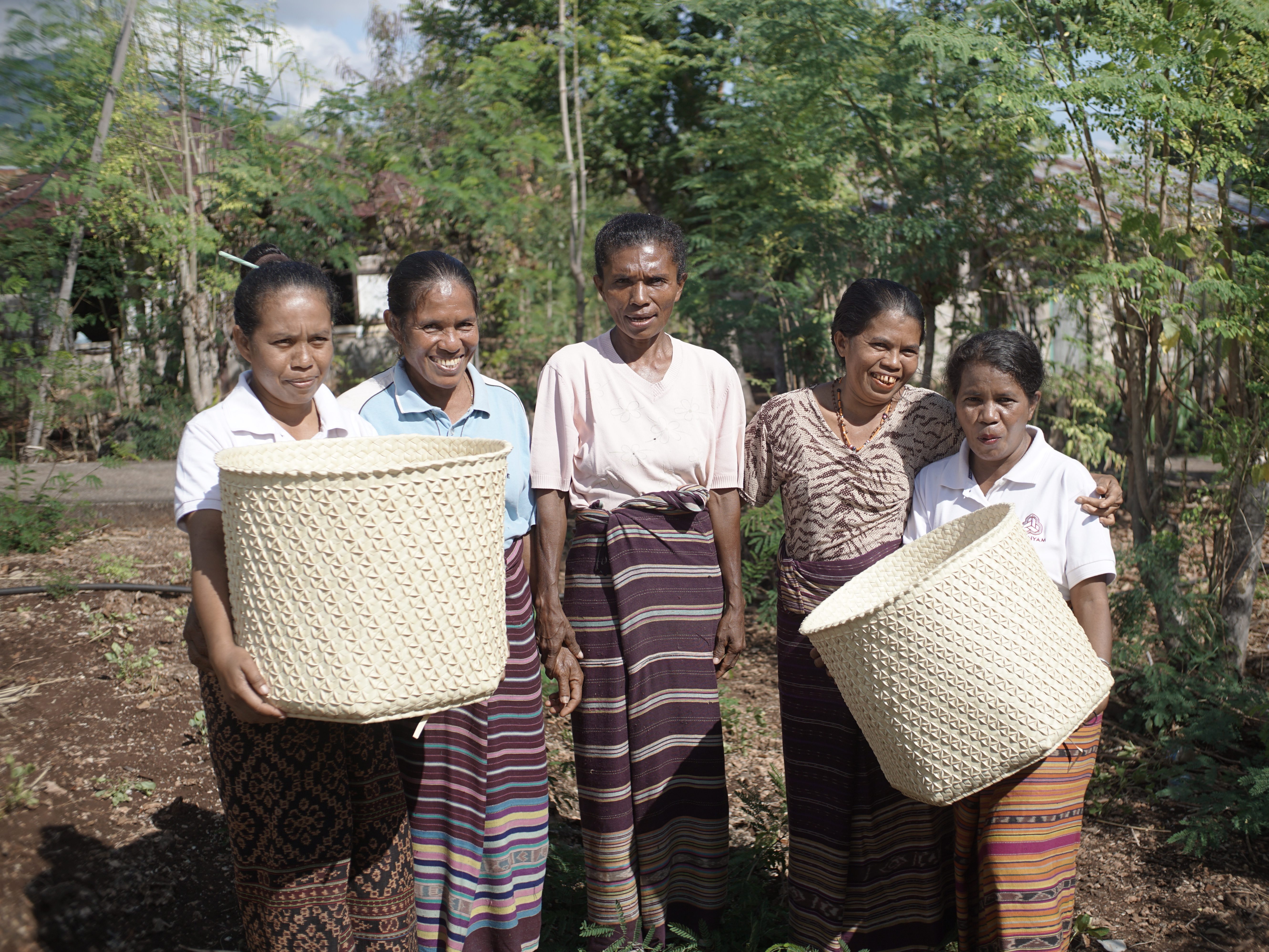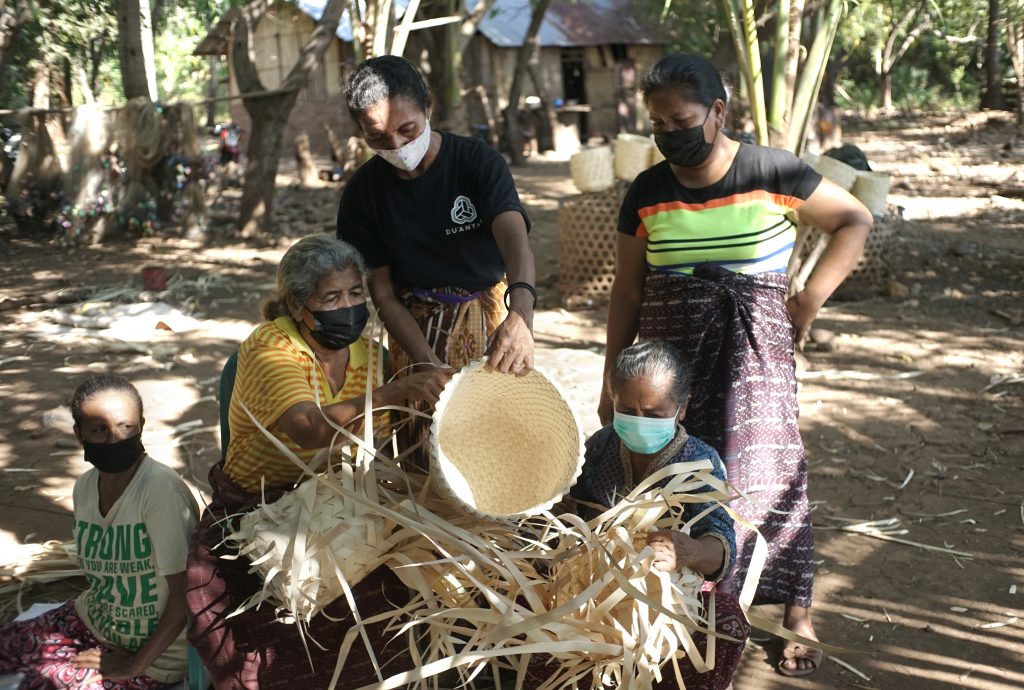At the beginning of this year, the World Inequality Report released a new article detailing the changes in gender inequality up to this year. They report that in 1990, women earned around 30% of the world’s total income, and in 2022, this number had barely risen to 34% (World Inequality Report). Over the course of 32 years, progress has been incredibly slow, and so the duty of decreasing this wage gap now falls in the hands of the people. Specifically, one of the best ways to decrease the wage gap is to increase equality in the workforce; Du Anyam has been consistently doing this through the empowerment of women artisans since 2014.
Understanding the importance of empowering artisans, in general, is critical to understanding how it impacts women. Creating businesses that highlight the empowerment of their artisans has numerous benefits.
1. It can help preserve culture.
Many artisans tend to highlight niche cultures and practices through their crafts. By empowering artisans through support services, better wages, training, and market access to their products, artisans will be able to promote and spread their unique culture to larger populations.
2. Many of these craftspeople tend to work with local resources.
Using natural and local resources can help create more sustainable production practices, cutting down on transport, shipping, and production environmental pollution.
3. Empowering artisans can help to alleviate poverty.
Many artisans working on highly specialized and cultural crafts bring their products from rural areas. By supporting artisans, who especially in developing nations support their entire household, poverty in rural areas can be alleviated. Creating support systems for artisans can not only help them improve their livelihoods and economic situations in the short term, but it can also help them and their families escape cyclical and intergenerational poverty.
Moreover, empowering women artisans specifically is extremely important for a myriad of reasons. Right now, women account for nearly two-thirds of the world’s labor and the production of half of the world’s food supply but get nowhere near equal pay as compared to men (Oxfam). The empowerment of women artisans has the potential to not only equalize pay and meet the World Fair Trade Organization’s fair trade standards, but it can also set the stage for greater poverty reduction (World Fair Trade Organization). Indeed, gender equality is central to ending extreme poverty, as resources in women’s hands mean greater expenditure towards healthcare and education (World Bank). Further, the empowerment of women artisans can lead to a perpetual cycle of empowerment as these women become leaders and strive to lift other women artisans up.
The empowerment of artisans is by no means unrealistic, in fact, Du Anyam, an Indonesian social enterprise, has made the empowerment of women artisans one of their core missions. They focus on providing leadership opportunities to women in the villages they work with in order to create a community of women who work to empower each other.
Through giving more women artisans management positions or even giving them opportunities to speak about their experiences on radio stations, women artisans working with Du Anyam have the ability to learn and demonstrate leadership skills. On top of this, Du Anyam provides a faster and more widespread connection to the global market by giving women artisans a means in which to sell their products on a larger scale.
By doing this, these women have greater access to higher wages and resources that Du Anyam can provide. Furthermore, the enterprise provides free training to women artisans that allows them to improve their skills and teach and help others. The culmination of these different resources explains why the women artisans who work with Du Anyam state that they now have more money to feed their children, support their education, and make sure they are happy and healthy. The empowerment of women artisans as seen in Du Anyam has made waves across Indonesia and surrounding regions; adopting similar practices can greatly benefit any enterprise.
Even with how much our society has progressed in the twenty-first century, we still have a long way to go in order to create widespread equality. Through the empowerment of artisans, one of the most overlooked groups, we can work together to create long-lasting change.
Partner with us and expand this impact to the globe.


